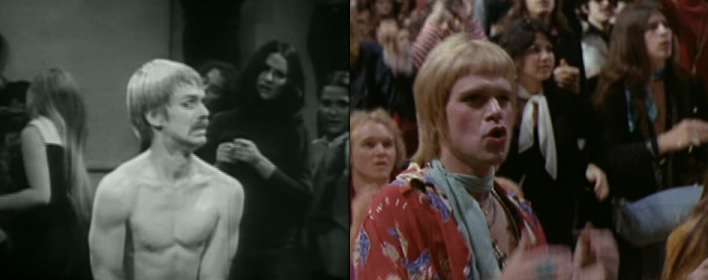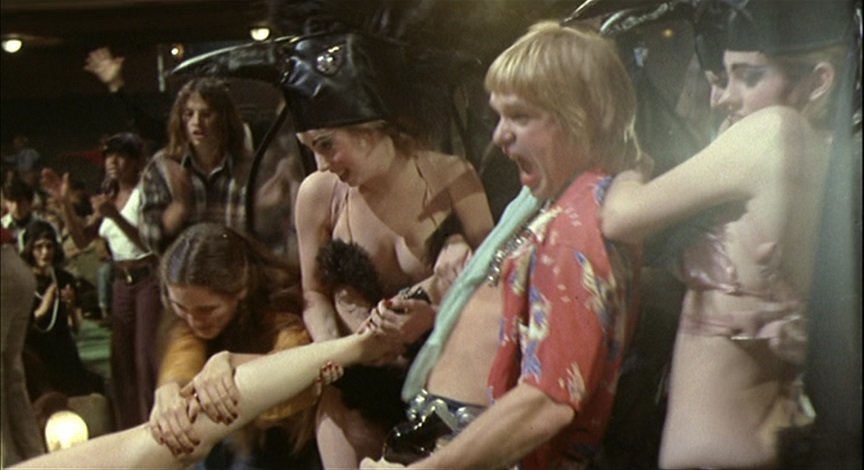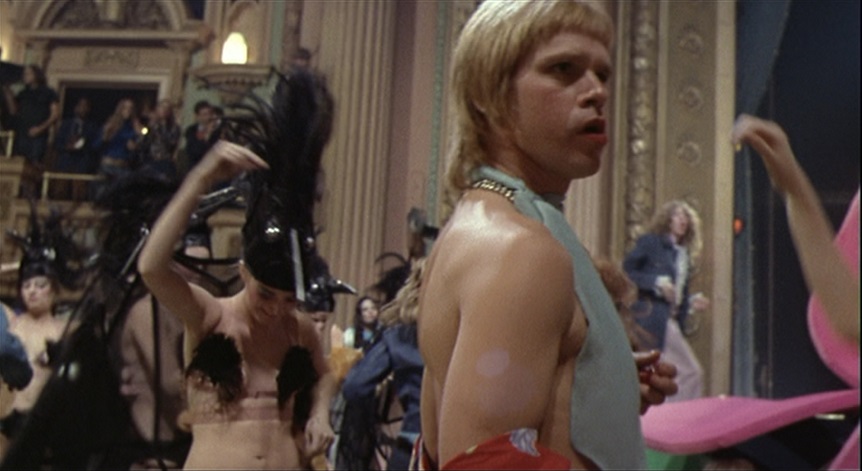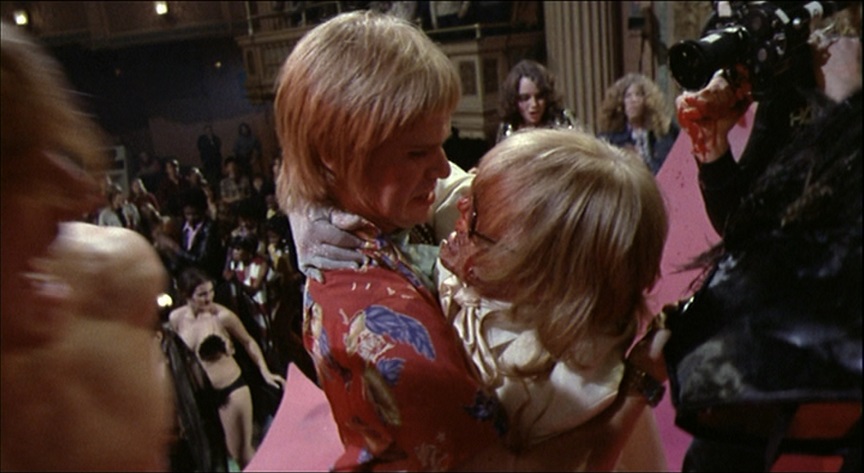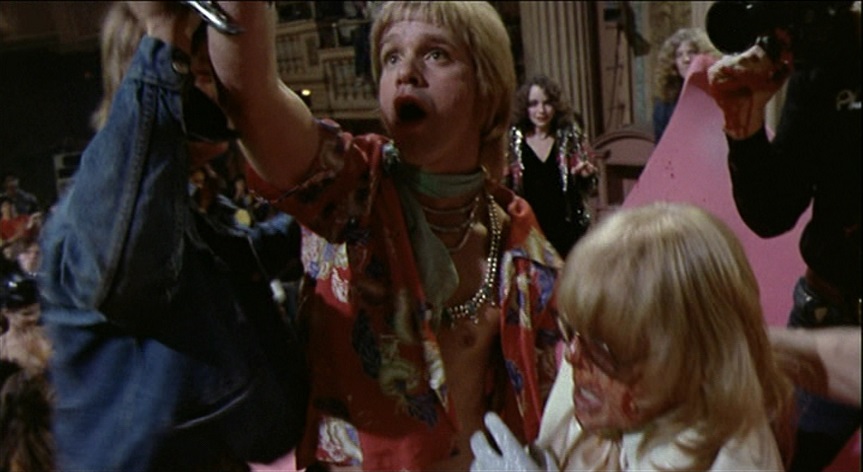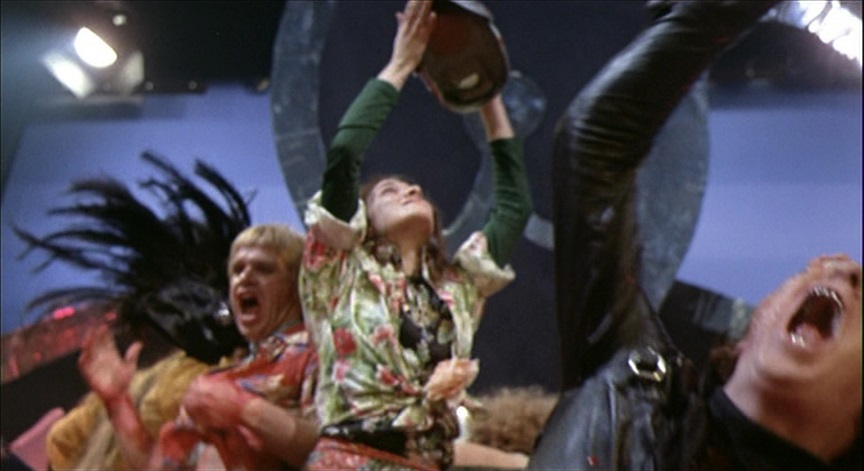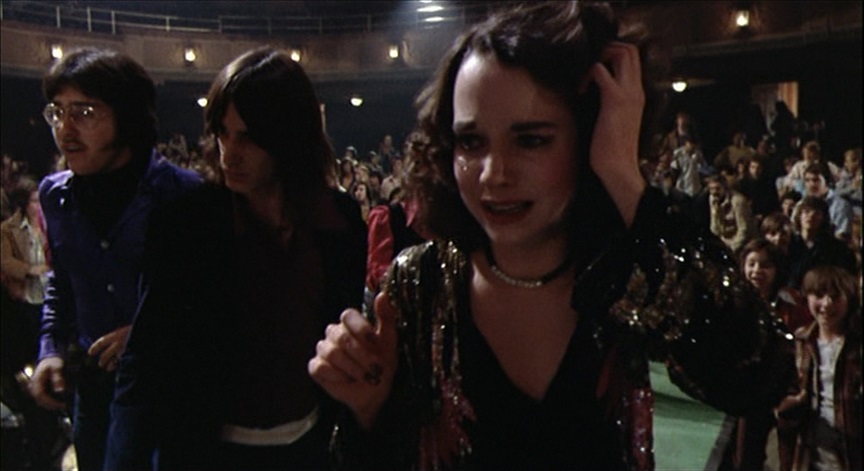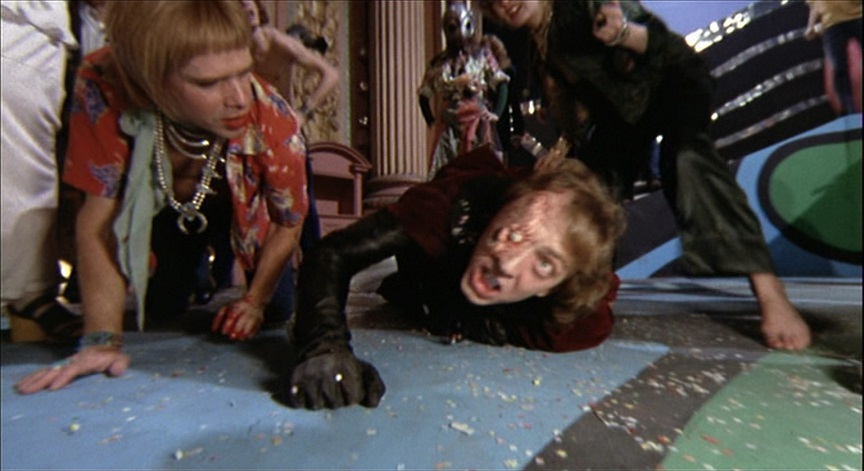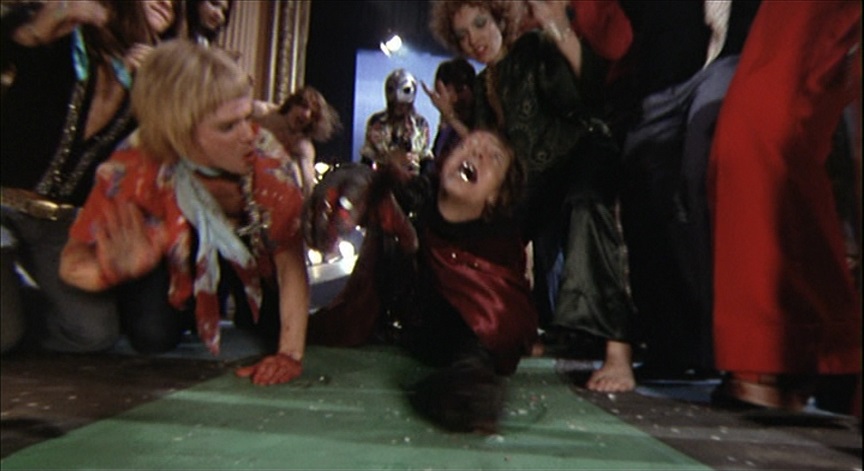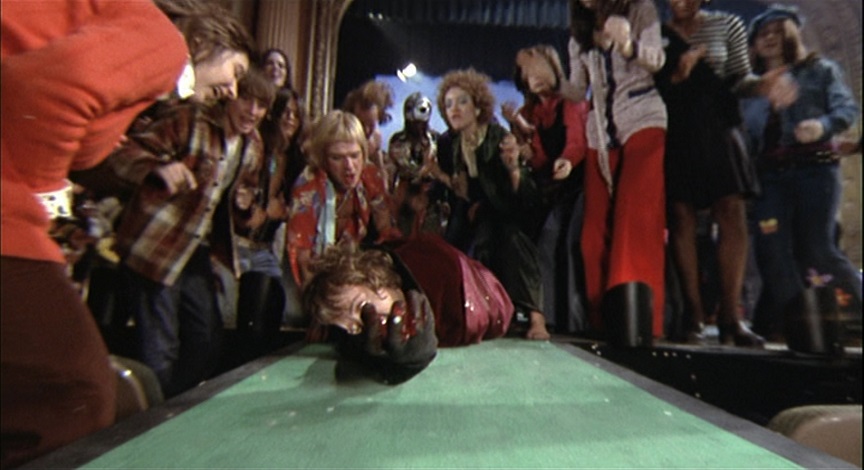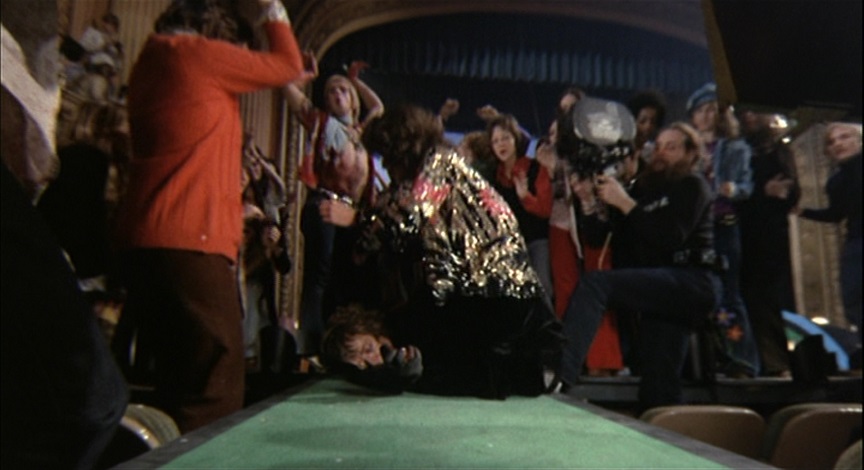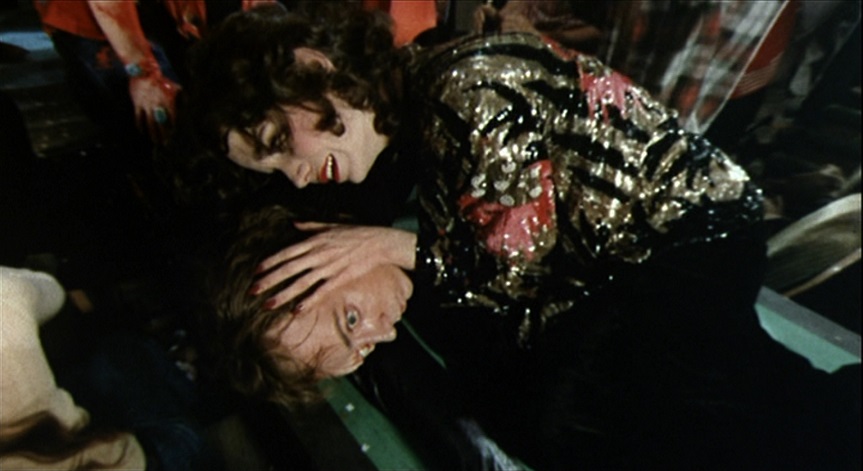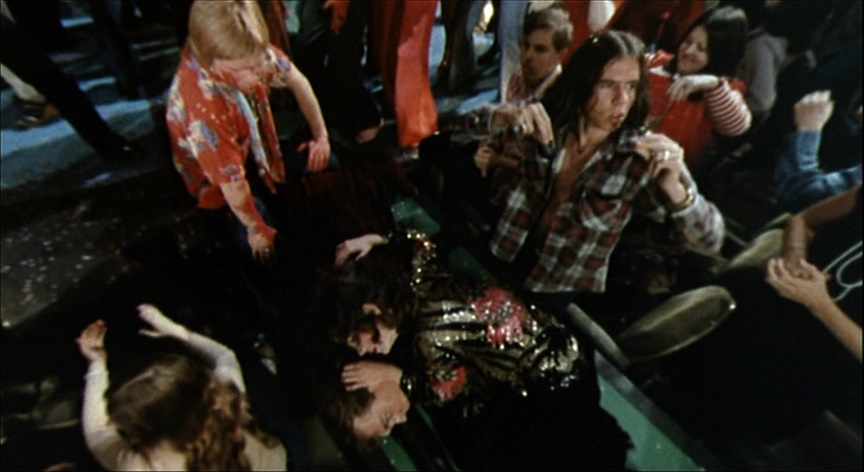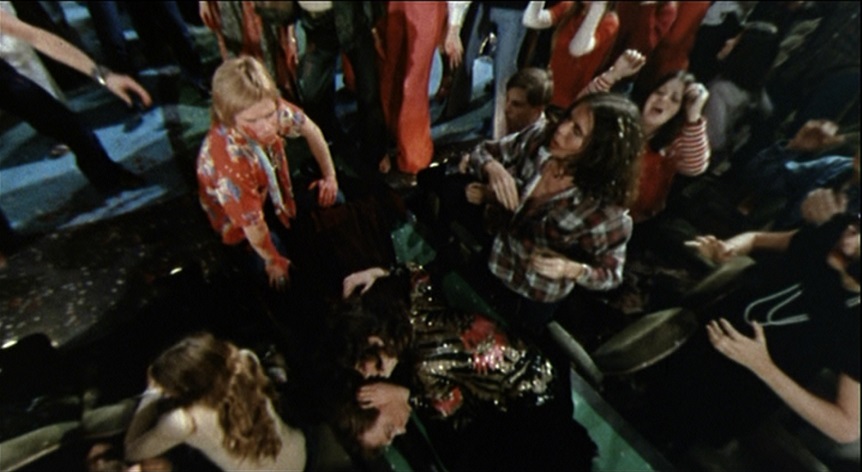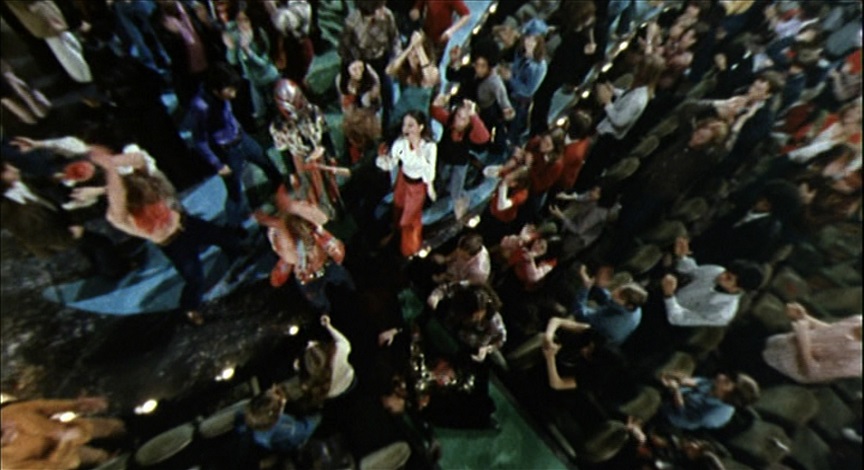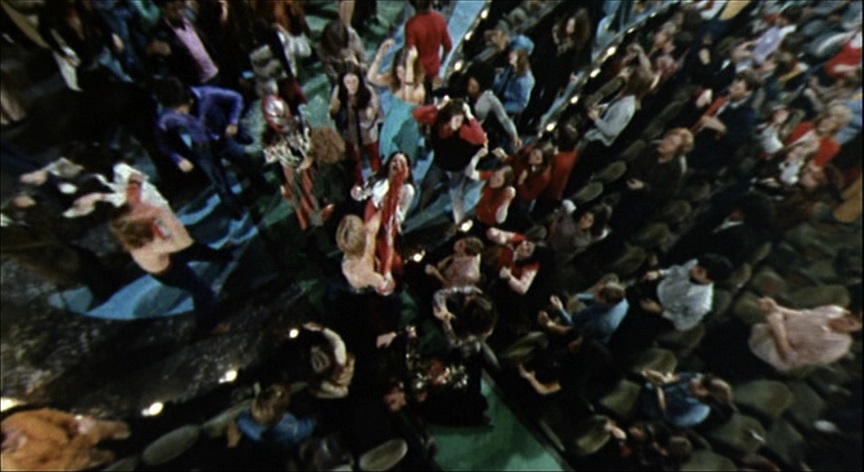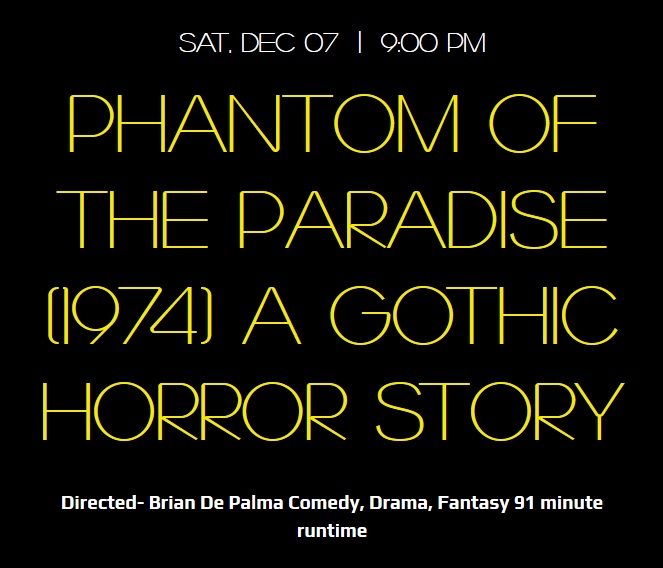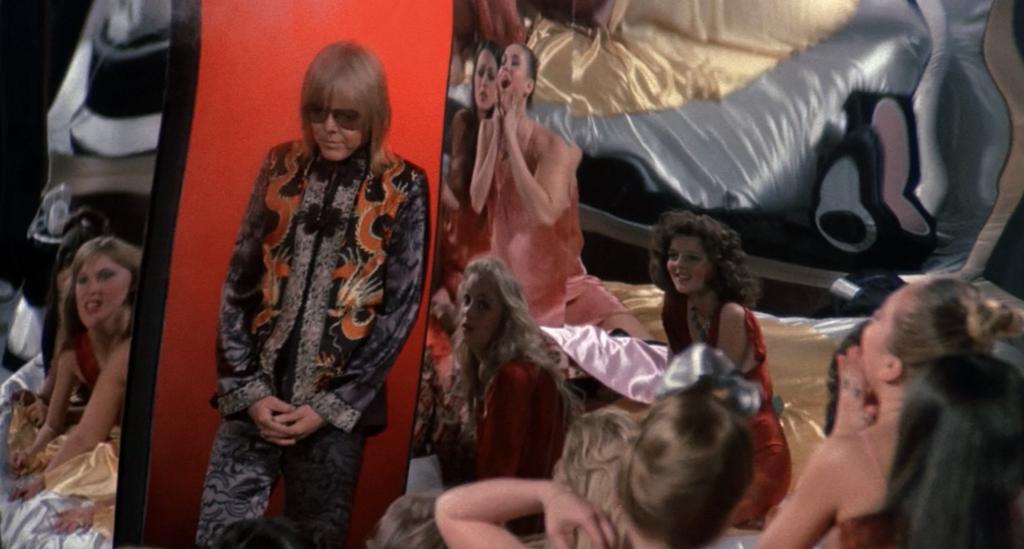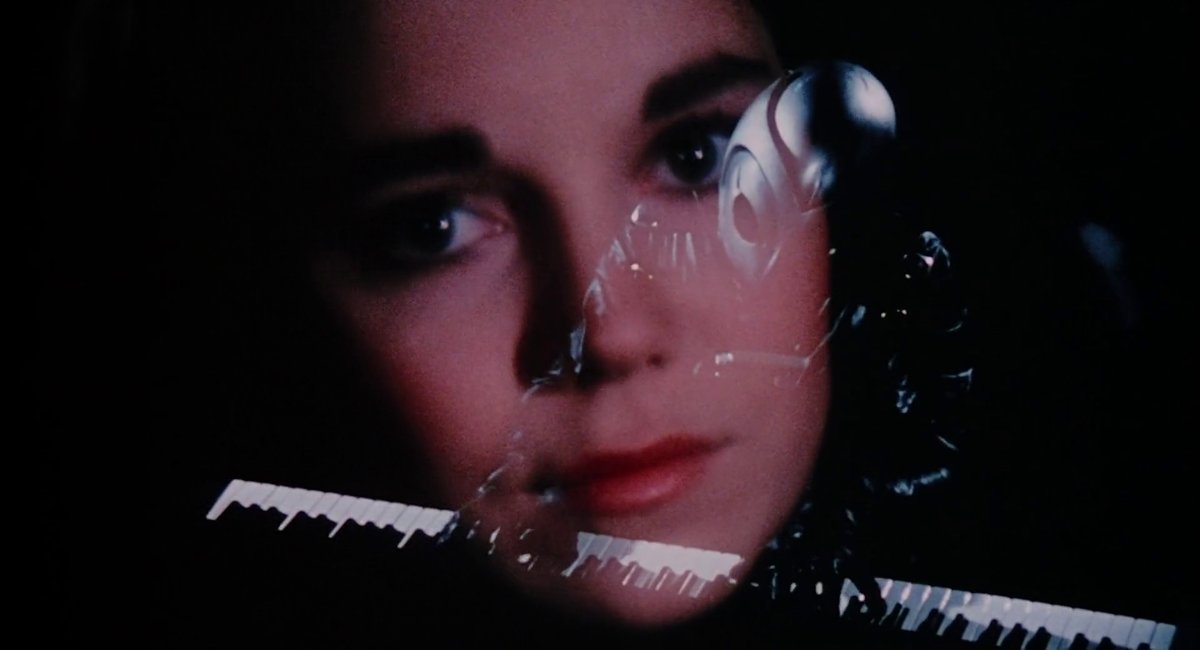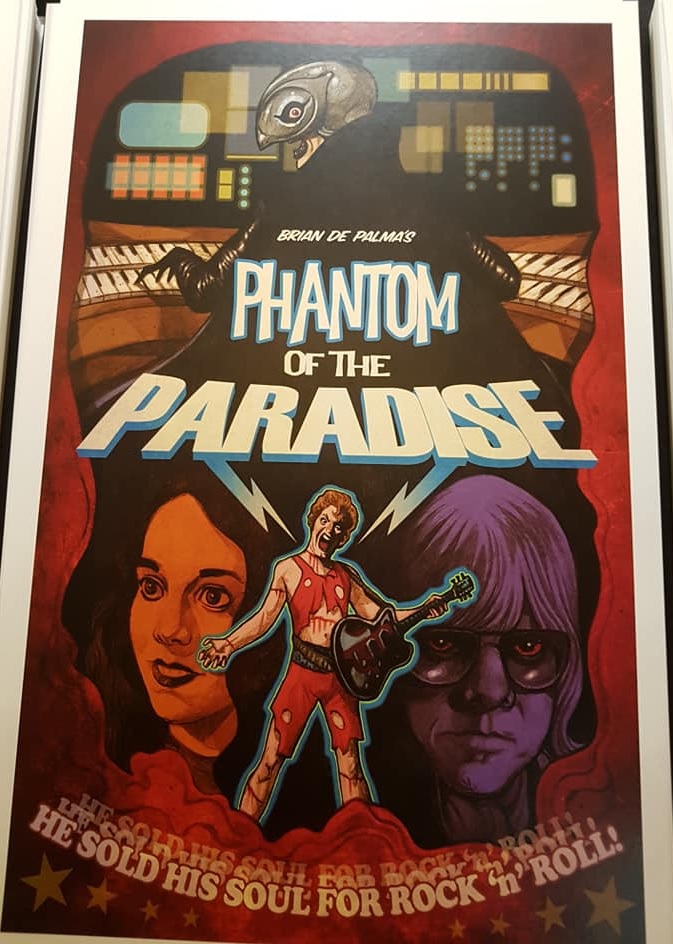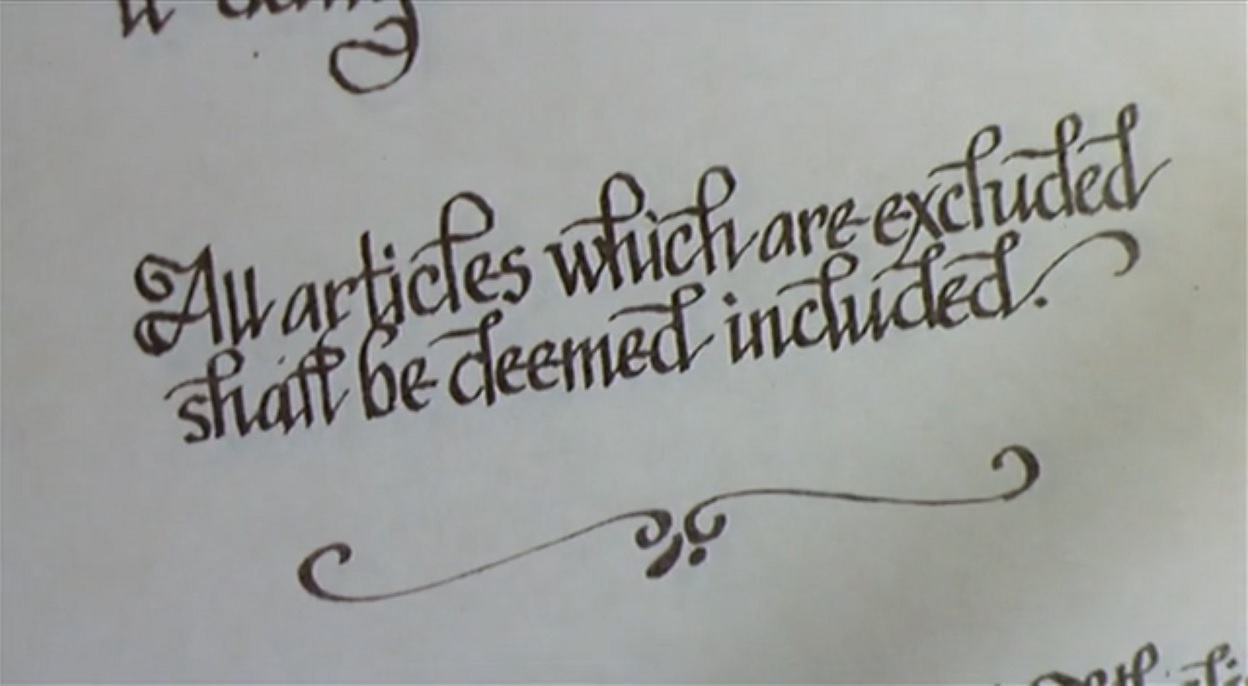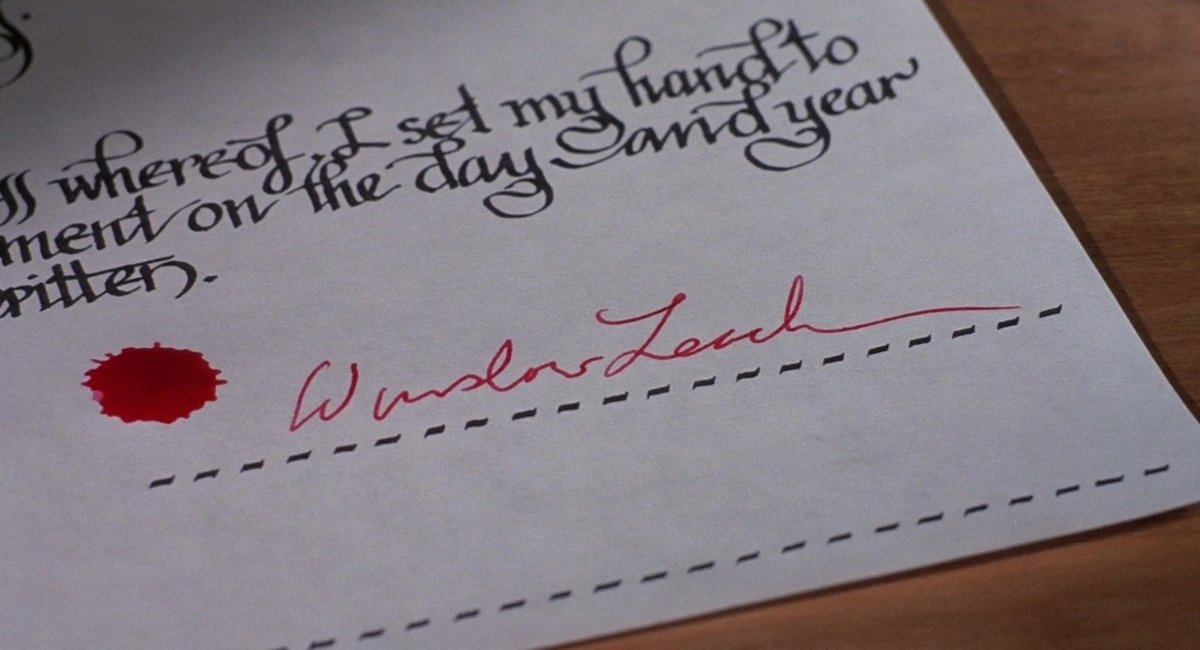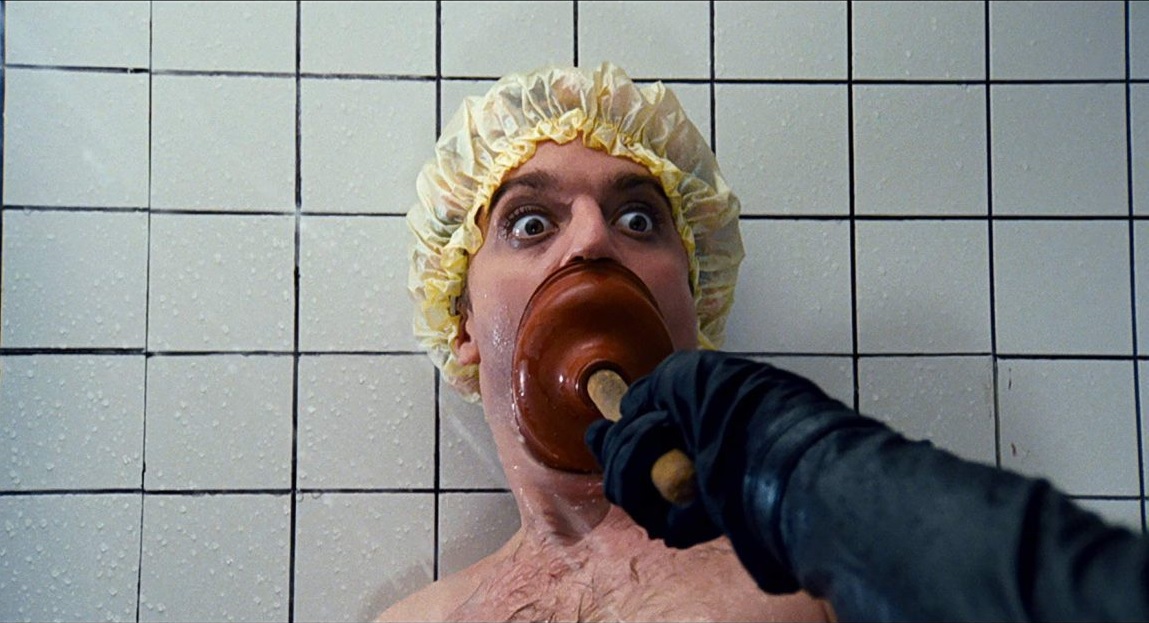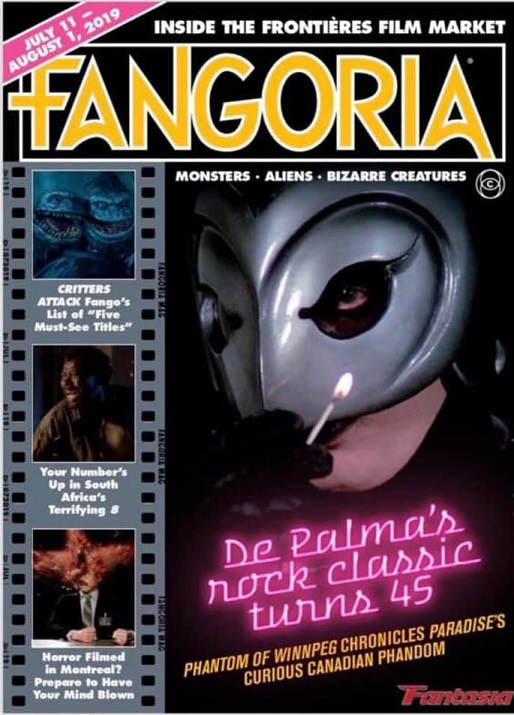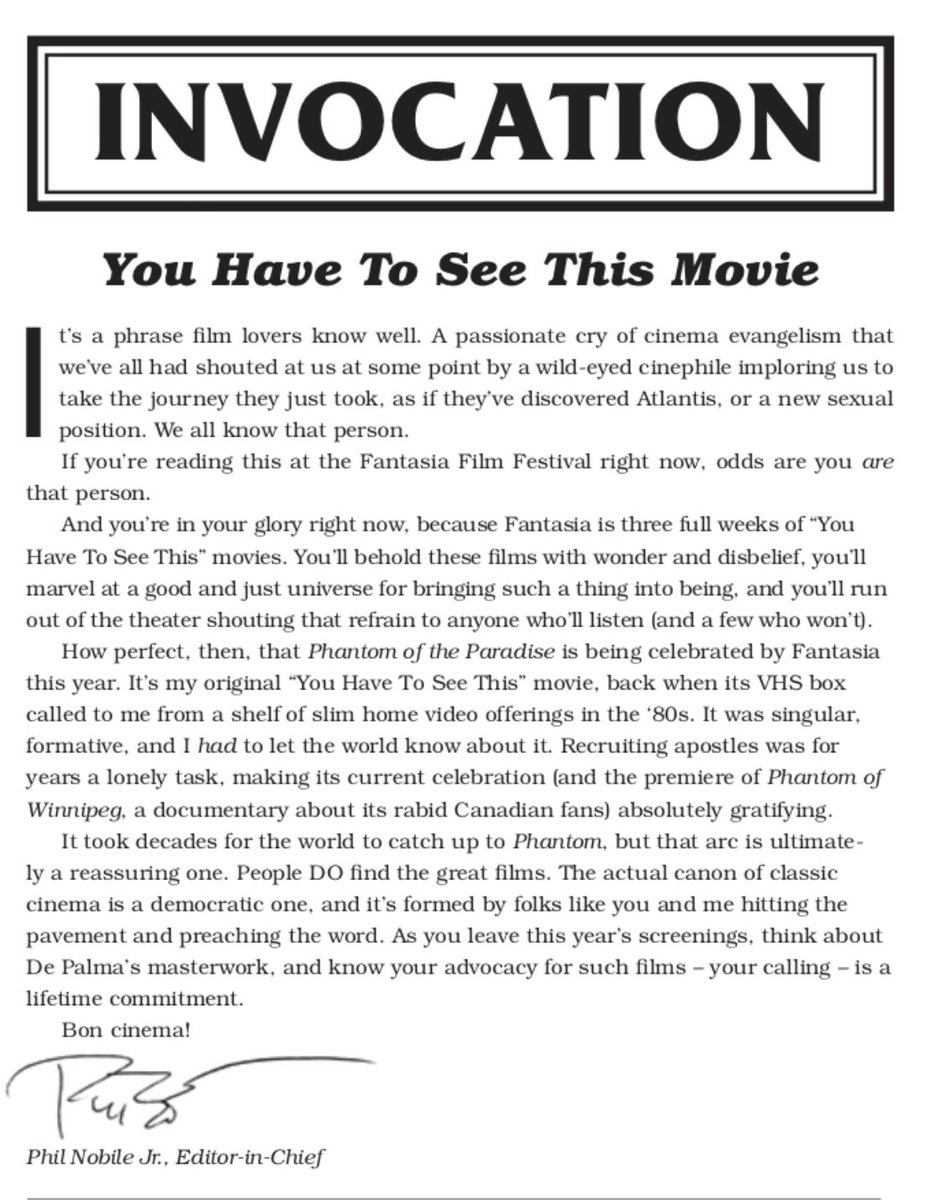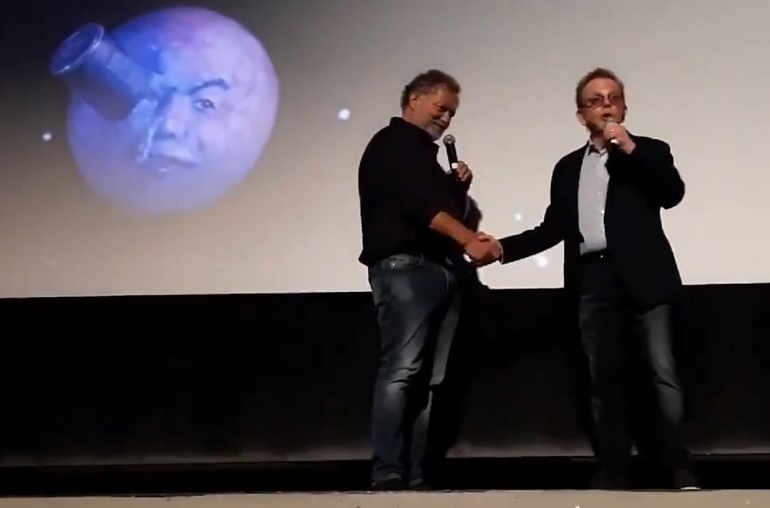landed in theaters. It was a commercial and critical failure at the time, but the film's sardonic take on the music biz made it a cult favorite, thanks in no small part to the stellar 10-song soundtrack from
, who portrayed the film's Faustian industry mogul, Swan, while also lending his singing voice to the titular phantom.
have reportedly seen it together more than 20 times -- and is now beloved by obsessive fans of all ages. The 1974 movie was director/writer De Palma's eighth (two years before
to weave a torrid tale, as the original tagline goes, of a composer who 'sold his soul for rock 'n' roll.'"
Turman interviewed Williams for the article. Here's an excerpt:
Was Jessica Harper cast when you were writing the songs? Did you know you'd be writing for her specifically? No, I was writing the songs in advance of her being cast. But there is a moment in the film that is kind of a recreation of how she was cast in the film, because we were casting, listening to girl singers in New York. Brian had already read Jessica, I guess. The song that I had everybody sing for the audition was "Superstar" [the Bonnie & Delaney song that was a hit for the Carpenters]. I thought it was a beautiful song, and it was probably close to the mood of what I was hoping "Old Souls" would be when it was sung.
I'm walking by Jessica, and she's singing to herself, 'Long ago and oh so far away…' And then she came in to audition for Brian and I, and she sang, 'Long ago and oh so far' in a Broadway voice. At least that's the way I'm remembering it. I think I said to her, 'Sing it to yourself.' And when she did, it was indicative of how brilliant the performance would be when she actually did it on film.
Was it true that she beat out Linda Ronstadt for the part?
I think that Linda Ronstadt was someone that Brian looked at. I think that his concern was probably because Linda was so brilliant, probably the fame would get in the way. None of us in the film were really, really famous at that point.
When you first started working on this, did you have the whole script in front of you?
Yes, and it's interesting, because I didn't have a copy of that script, and I just got an email from a former manager who's still a really good friend. He said, 'I just found a bunch of stuff of yours that I wanna give back to you, including the Phantom of the Fillmore,' which was the original script. So that'll be interesting to look at that.
But the story changed, and I think it became more and more reflective of the kind of news as entertainment. I've said this many times, but my favorite line and I think the heart of the picture is 'an assassination live on coast-to-coast television -- that's entertainment.' I think the turning point was in the original script, Beef was killed in the shower. The idea of having the Phantom just threaten Beef and then actually having him killed onstage [happened]. The kids are seeing so much theatrical violence, and Brian made a point of making that theatrical violence look obviously theatrical. You see the foamy head, you see all the strings and all. But it's wonderful. That leap in the story where the kids see a real murder and they think it's part of the show, I think, is maybe the most powerful message in the film.
How did you decide what scenes needed music? Was that between you and Brian?
It evolved. I was wonderfully comfortable and confident with my road band. And they got it. So the first big change was that I said, "Brian, instead of using, for example, Sha Na Na, I'd like to see the same band evolve through all these characters from the Beach Boys to the '50s Sha Na Na kind of thing to the music of the spheres" or whatever. But I think that the content of the songs, I was always pretty much given that task.
Are there any songs that didn't make it into the movie?
I think the only one really was "The Hell of It," which we used it for the intro. "The Hell of It" originally was a graveyard scene when Beef is being buried. You see the open grave and the casket above the grave, and you notice, you see a microphone, so you follow the cables back to a hearse that has a recording board inside, and Swan is in there recording the funeral live on Death Records. And I actually did a little thing at the end of the song that I wanted to have. Brian said, "Let's have the people kinda doing a little circular dance around the coffin, and then as the coffin is lowered into the ground, have a little girl run forward and start tapping on it, auditioning for Swan." That's what inspired the kind of [Godfather composer] Nino Rota, "da da da da…" Very Nino Rota, I hope.
And the best part of the job, too, [was] to be able to satirize the kinds of music that I loved. I was writing all these codependent anthems and 'ouch, Mommy' songs, but I was loving the music that was coming out of Laurel Canyon, you know. I loved the Beach Boys; there were so many different kinds of music that I loved and was able to satirize them.
I'm really, really pleased with the movie, and I'm overwhelmed at the way it's grown through the years. The big philosophical/spiritual lesson, I suppose, is don't write something off as a failure too quickly.
The lyrics to "The Hell of It" have always killed me, because they're so brutal: "Though your music lingers on, all of us are glad you're gone." It's so mean!
Thank you. I'm thrilled to hear you say so. It seems to me I should've written songs for Despicable Me, just based on that. I'm sure you'll let them know. [laughs]
You mentioned that maybe Phil Spector was an influence for your character. Did you base Swan on anyone in particular?
It was on the page. For the songs, probably one of the biggest mistakes I think that hit songwriters try to do is when they sit down and work on a musical, they try to write hit songs. I don't think that was ever anything -- if it was in my mind, it got shoved to the side. To me, the task is to advance the plot and tell the audience who the characters are and lead them to the emotions you want them to feel.
Do you have a favorite song on the soundtrack?
It just shocks me that it hasn't been recorded -- I think "Old Souls" will always be my favorite. I think that Jessica's performance is so brilliant, and I would love to someday see that song… If the things we dwell on are the things that we create, co-creators are our future. I'm gonna have to add that one to the mix, just go, "You know what? Wouldn't it be lovely to see Jessica Harper have a huge hit record right now with 'Old Souls'?" I don't know if it would get any better than that. But yeah, I think that the elements of high romance and the concept of past lives is powerfully presented in that song, and especially in her performance.
It struck me when I re-watched POTP in the era of #MeToo, there were the casting couch scenes and references to a "f-g." Would that be in if the film was made now?
Well, I think if you wanted an example of somebody disgusting, somebody that is reflective of the character of the boss -- it's a classic example of trickle-down obscenities and all. I don't know if it would be made right now. I think that the fact that the casting couch, essentially rape, scene that is in the film and is quote/unquote "funny" is not funny at all. And it's a character element and who Philbin is and what the operation of Swanage and everything that goes on. Like that moment in the back of the limousine is as equally unsettling as that "We'll go to Swanage and celebrate." And of course, the only thing Swan enjoys more than taking somebody else's woman is having that person watch. For a [cuddly] little guy, we did take it to a really awful place.
I saw the film first when I was 12 or so, and I thought the scene Jessica and Swan in bed was the height of romance, which shows where I was then!
Well, oddly enough, I think part of the success with young girls that age is Swan is incredibly androgynous and he's scary and powerful and all those things, but I don't know if physically I was ever threatening at all. I'm shocked when somebody says that my character scared them, and I was like, really? Really?
Someone told me Donovan Leitch was trying to get a live stage version of Phantom of the Paradise going some years ago. Is anything like that happening now?
You know, what we do is we talk about it regularly, so there can be one thing that I can respond like a hamster when you drop a carrot in the cage! It runs over and starts chewing on the carrot; I run over and start chewing on the idea. It would be lovely to see this happen before I'm room temperature. I actually wrote some additional songs, and it's one of those things that may happen someday. There have been some challenges, and I think we're getting… I'm very Jiminy Cricket about my world and all, so magical thinking totally works for me. So I will say that it's something that I think will probably happen within the next few years.
Did you write those additional songs just because you were inspired in the moment, or—
No, we were actually working on it at the time, and I'm not sure what happened, because somebody else was using my body at that time [i.e., under the influence]. In other words, I'm talking about writing a few additional songs 30 years ago. So I would have to examine all of that again. But in the meantime, the phone keeps ringing. I don't chase any of it. I get up in the morning, and I say, "Lead me where you need me." Which sounds very idyllic, but that's how I live my life. It's endless surprises, and I couldn't be more grateful.
